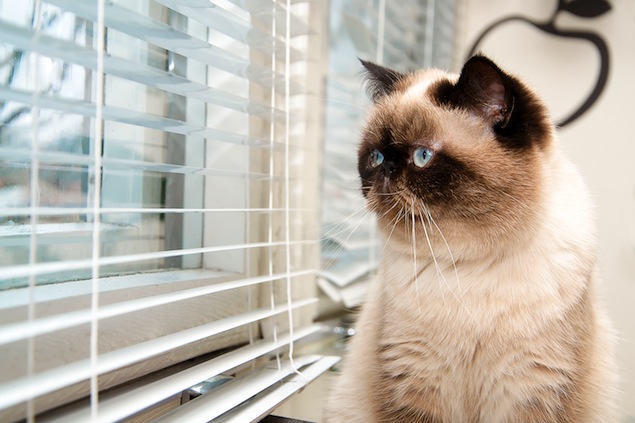Have a question you’d like to ask a vet? Send your query to pets@washingtonian.com with the subject line “Vet Q.”
Q: We have an 18-year-old cat who seems distraught after the death of our 15-year-old golden retriever. The cat keeps walking around the house, looking in closets, going from room to room. We never had the sense they were all that close, but is this kind of seeming attachment between a cat and dog fairly common?

Dr. Chris Miller, AtlasVet DC: For years, science has told us that our pets do not have the ability to reason, to feel emotion, or have the ability to mourn. However, recent research has shown that animals can respond to familiar stimuli in ways much like humans can. And when their daily routine is altered, our pets notice. Many argue that animals like dolphins, elephants, dogs, and cats have feelings that parallel those of human emotion, and anyone who has owned a pet would agree that such things are possible. It is for these reasons that when your pet loses a longtime housemate that abnormal or new behavior may be noted.
That said, there are many other potential causes for behavior change, especially in an 18-year-old cat. Possible health problems such as hyperthyroidism, diabetes, and cognitive dysfunction are just a few diseases that affect geriatric cats that could explain behavior change. Any sudden behavior changes in your pet should be discussed with a veterinarian to help rule out possible illnesses.
In our experience, a pet that seems confused or even appears to be grieving after losing a companion is not uncommon. Much like humans in periods of sadness, you can help your four-legged friend by keeping the mind stimulated, increasing physical activity, and ensuring regular exposure to familiar faces. These may assist your pet in bouncing back from a loss.

















